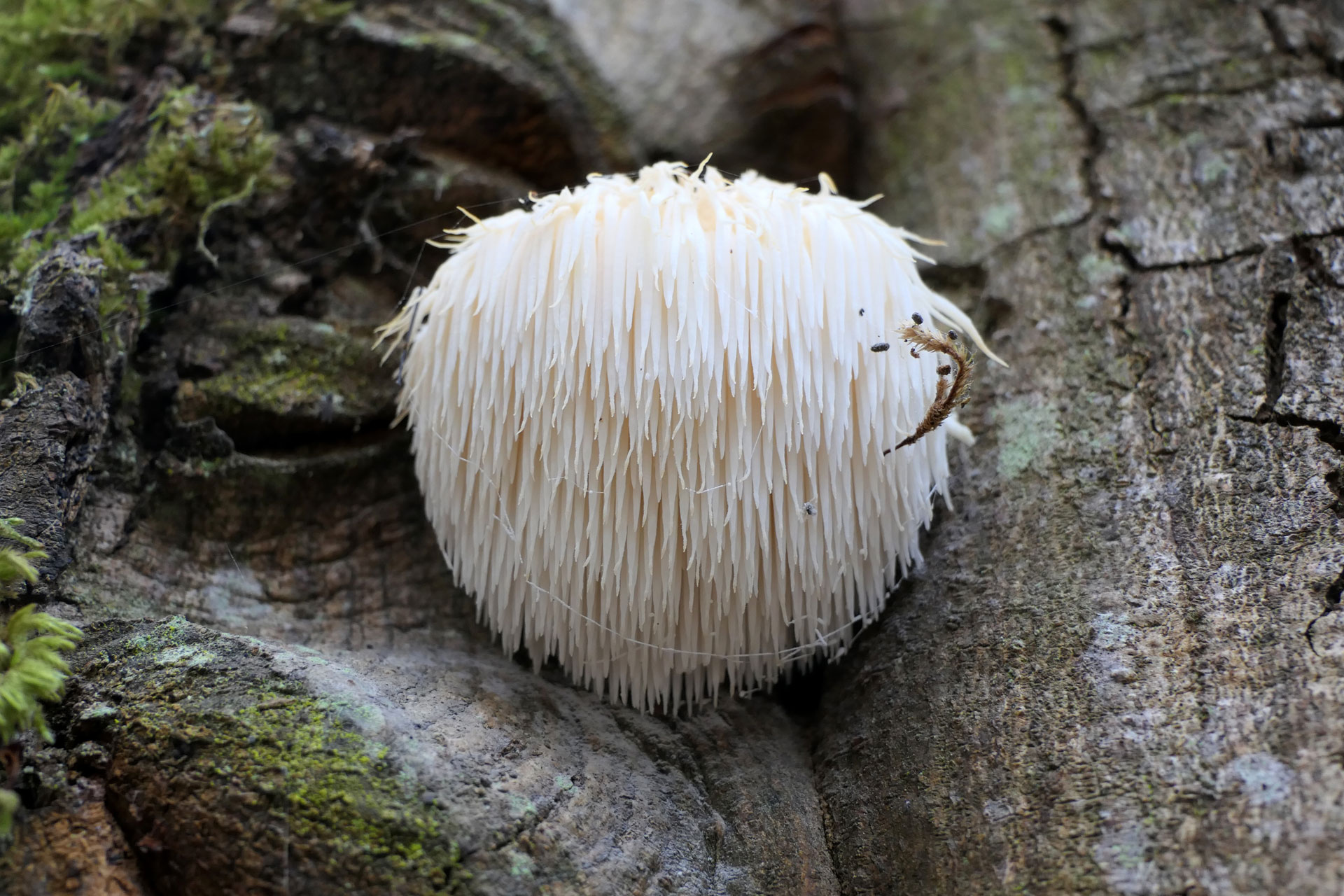Lion’s Mane Mushrooms: What Are The Health Benefits?
By
11 months ago
Here's why this functional fungi is trending right now

Mushrooms have been all over the wellness sphere for a few years now – but the fungi hype is going nowhere. Most recently, there’s been a surge in interest surrounding speciality varieties, also known as medicinal mushrooms, which are renowned for their functional benefits, from boosting immunity to reducing anxiety. There are a number of types – reishi, turkey tail, cordyceps – but there’s a particularly big buzz around one shroom right now: lion’s mane.
These large, white, shaggy mushrooms resemble a lion’s mane when they grow (hence the name), and devotees are raving about the health benefits. That includes Clarkson’s Farm star Lisa Hogan, who sparked further interest after making lion’s mane powder with homegrown mushrooms on the hit Prime show. Google searches for the term have soared by 450 percent in the past week alone – so what’s behind the hype?
What Are Lion’s Mane Mushrooms?
Known scientifically as Hericium erinaceus, the lion’s mane mushroom is a type of functional mushroom which can be bought in its raw form or as a supplement. They have long been used for both culinary and medicinal purposes, particularly in Asia – but recently they’ve become big here in the UK too. With their white, pom-pom-like appearance, they might not be the most attractive shroom in the field, but they are packed with powerful plant compounds which could have significant health perks.

(c) Getty Images
What Are The Health Benefits?
Lion’s mane mushrooms are renowned for their brain benefits. As Rhysa Phommachanh, healthcare expert at Landys Chemist, says: ‘Lion’s mane is packed with compounds that support brain health and mental clarity. It’s especially popular among students, professionals, and older adults looking to boost cognitive function and memory naturally, while also providing a natural alternative to synthetic supplements.’
While scientific research is still in its infancy, there is some evidence to back up the health claims. Researchers have found benefits such as:
Supporting cognitive function
These mushrooms contain the compounds hericenones and erinacines, which help stimulate nerve growth factor production – this contributes to brain health, memory and focus. In one study, lion’s mane dietary supplements appeared to help recognition memory in mice, while another suggested the mushrooms may help prevent diseases like Alzheimer’s. However, the existing studies have mainly been done on animals, so further research is needed.
Improving gut health
There’s also evidence to suggest lion’s mane mushrooms could positively benefit gut health, reduce inflammation and improve digestion. That’s because they contain polysaccharides, which may have a prebiotic effect and help increase the diversity of good bacteria.
Supporting mental health
Again, research is in its early stages, but scientists have found links with lion’s mane mushrooms and mental health. It’s thought these powerful mushrooms may help alleviate the symptoms of anxiety and depression: the Journal of Medicinal Food, for instance, found the anti-anxiety effects of lion’s mane may be a result of improved hippocampus function.
Are They Safe?
‘Lion’s mane mushrooms are generally considered safe to consume as part of a daily supplement regime for most people,’ says Phommachanh. ‘However, for some individuals, such as pregnant and breastfeeding women, those taking blood thinners or medication for diabetes or individuals with mushroom allergies, it is advised to consult a healthcare professional before taking them.’
Don’t go foraging for them yourself, though. Lion’s mane mushrooms are illegal to collect in the wild – instead, stock up in food shops or markets. Many people find them easier to take as supplements, but you can also buy them fresh and use them in your cooking: lion’s mane can be sauteed, roasted or fried just like any other mushroom.









